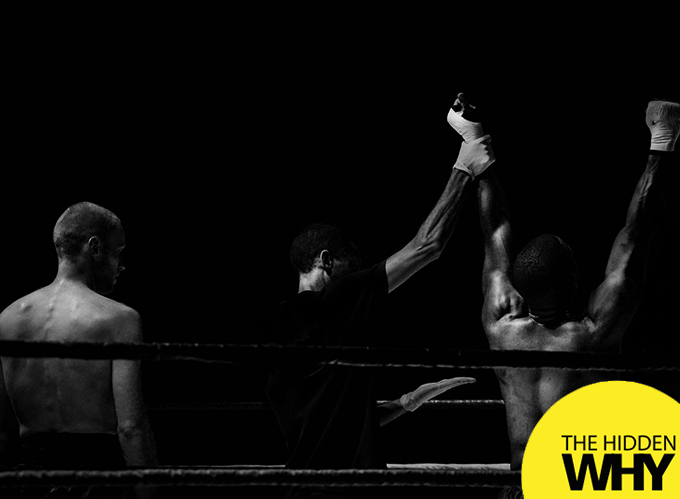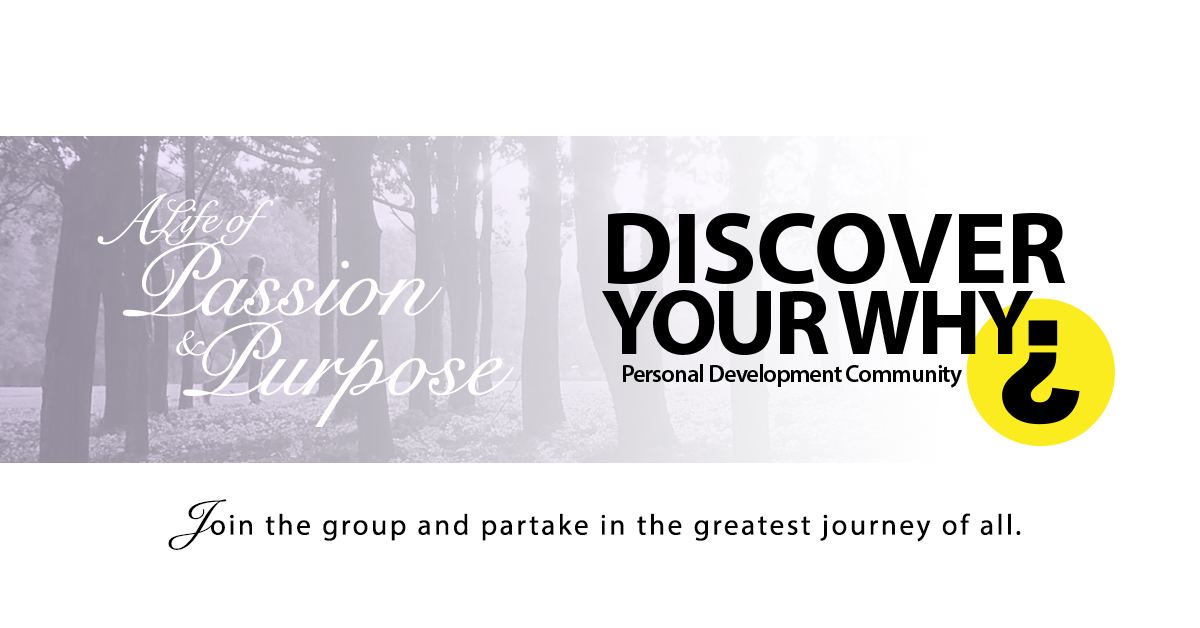
Why I Lay Awake in Bed Night After Night & Practices That Help
This article is the very first blog I wrote for The Hidden Why. I thought it might be worth my time to revisit old posts with an effort to reflect on how my thoughts and beliefs have adjusted. It also gives me the opportunity to correct grammatical mistakes and clean up my writing without promising that there are none in this revised article.
In all transparency, I was not surprised by the amount of errors I made and the poor quality of my original writing. The good news is that I have certainly noticed how far my writing has come. I wrote this piece about 2 and a half years.
What I enjoyed was seeing how my perspectives have changed and yet my voice has remained very consistent. I have tried to keep this post as close to the original as possible without taking too much away from my initial intention. However, I have summarized and closed with slightly different thoughts. (more…)

Recently I listened to a podcast by Tim Ferriss on knowing when to quit and when to persevere with something. He had a bunch of special guests report their thoughts and advice to this question, most of which he has interviewed in the past. Have a listen if you haven’t already.
In this article, in parts one and two, I wish to share my thoughts on this question. I may not be as highly regarded as some of the guests on Tim’s show, but I have had my fair share of times when I’ve quit and when I’ve stuck with it. Including times when I should have quit or stuck with but didn’t that have resulted in both favorable and unfavorable outcomes.
I think it is necessary first to determine what it means to quit and what it means to persevere because sometimes the image or definition we attach to words can skew the meaning and affect our thoughts and how we behave. (more…)

The Roads that lead to Self-Mastery
Is self-mastery a mindset? Are we all able to achieve our full potential or is mastery only available to those with the resources or pre-existing talent?
Success is a result of accomplishing whatever we set out to achieve – completing a goal or fulfilling a set aim or purpose. It doesn’t, however, mean we reach mastery. I am not sure if “self-mastery” is indeed absolute or possible. Here is a quote by Sarah Lewis that inspired this thought.
“Masters are not experts because they take a subject to its conceptual end, they are masters because they realise there isn’t one.” Sarah Lewis

Two Sorts of Thinking, Part 2 – Thoughts of Sensuality, Thoughts of Ill Will, Thoughts of Harm
“Whatever a monk keeps pursuing with his thinking & pondering, that becomes the inclination of his awareness. If a monk keeps pursuing thinking imbued with renunciation, abandoning thinking imbued with sensuality, his mind is bent by that thinking imbued with renunciation. If a monk keeps pursuing thinking imbued with non-ill will, abandoning thinking imbued with ill will, his mind is bent by that thinking imbued with non-ill will. If a monk keeps pursuing thinking imbued with harmlessness, abandoning thinking imbued with harmfulness, his mind is bent by that thinking imbued with harmlessness.”
This is a follow on post from my post last week titled, “What is Thinking. Consciousness & Mindfulness.” If you haven’t yet read that post you might wish to start there as it will give you better context to my thoughts shared in this post.
In the above discourse Buddha outlines “two thoughts of thinking.” These are thoughts of sensuality, thoughts of ill will and thoughts of harm or conversely thoughts of non-sensuality or renunciation, thoughts of non-ill will and thoughts of non-harm. (more…)

Part 1 – What is Thinking. Consciousness & Mindfulness.
“Whatever a monk keeps pursuing with his thinking & pondering, that becomes the inclination of his awareness. If a monk keeps pursuing thinking imbued with renunciation, abandoning thinking imbued with sensuality, his mind is bent by that thinking imbued with renunciation. If a monk keeps pursuing thinking imbued with non-ill will, abandoning thinking imbued with ill will, his mind is bent by that thinking imbued with non-ill will. If a monk keeps pursuing thinking imbued with harmlessness, abandoning thinking imbued with harmfulness, his mind is bent by that thinking imbued with harmlessness.”
In this post, I will reflect on a sutta in which Buddha discusses Two Sorts of Thinking. You can find it in Majjhima Nikaya – “The Middle-length Discourses.” 19: Dvedhavitakka Sutta: Two Sorts of Thinking.
First, suttas are Buddhist scriptures that include readings or teaching of the enlightened Buddha. This particular collection or “Nikaya” is the second of five and contains 152 discourses (written or spoken communication or debate). (more…)

Tell me, what brings you joy? The Art of Self-Expression.
How open and honest are we with ourselves? How open and honest are we with others? Do we avoid the direct approach to truly expressing ourselves? If so, why?
I often find myself hoping for things to happen or change without taking direct meaningful action. I wonder if we weren’t afraid of the consequences that may result from what we think, say and do how much more cooperative and congruent would life be, for all of us?
It is not that I am dishonest, lazy or unwise. I work hard, I put my best efforts in being congruent and authentic in all my actions, and I think I am highly organized and purposeful. Yet still, for what I desire in life I am not always full-frontal. I am sure I am not alone. (more…)

Why Was My Friend SO Happy With Life? What Was His Secret?
I was feeling dissatisfied with my life. I wasn’t really aware of this at the time. I felt normal. I held the belief that this is how life was. I kept telling myself that things will improve thinking that perhaps I was just in a rut. However, all of this wasn’t really helping me and I wasn’t experiencing any noticeable changes.
Days, months and years passed. I felt quite the same – dissatisfied! I wasn’t really angry or pissed off. I didn’t think it was only my life that sucked. I wasn’t a victim of life. I knew I wasn’t alone but I couldn’t really see that. I was trapped in my own suffering and this was limiting my externally held perspectives. It was limiting the quality of my life.
I couldn’t see the fruit through the leaves. Actually, at the time I wasn’t sure there was any fruit. (more…)

Find Effectiveness and Purpose: The Value Exchange Assessment
Time is our most valuable resource, which is a phrase you’ve probably heard before. The truth is that to be able to develop our full potential in daily life we have to master effectiveness, and that requires the wise and purposeful use of our time.
Effective time management is the art of extracting true purpose from all moments in life. To discover more purpose in life, we have to start thinking, behaving and being more purposeful.
Purpose is a reason something exists or why something is done or created. To understand if something has a purpose it is beneficial to develop awareness of the correlation between the resource exchange and the perceived or expected value to be gained. (more…)

Everyone Wants You to Succeed – How to Overcome a Victim Mentality
According to Wikipedia, Victim mentality is an acquired personality trait in which a person tends to recognize themselves as a victim of the negative actions of others, and to behave as if this were the case in the face of clear evidence of such circumstance.
There are a few distinctions that need to be made. Number 1, Victim Mentality is an acquired or developed trait. And number 2, it relies on attribution that is the process in which humans assign causes to their actions and behaviours.
It is further suggested that in the majority of cases people that have a victim mentality have been wrongly done by through no fault of their own. This leads to the creation of a universal victim mentality, those that constantly consider themselves to be a victim despite evidence that may suggests otherwise. (more…)

The Fly in the Ear of the Bull
In an interview I heard on the James Altucher Podcast, Yuval Noah Harari made this comment,
“In a way, a terrorist is like a fly that tries to destroy a china shop. The fly is so small and weak. It cannot move even a single teacup. So how does a fly destroy a china shop? The fly finds a bull, gets into the ear of the bull and starts buzzing. The bull becomes so enraged that it loses its temper and destroys the china shop. This is what happened in the middle east over the last 15 years,” Yuval said.
Since then I have found another story about a little fly and a bull. The moral of the story was about one’s self-perceived importance. When the fly attempted to get the bulls attention by buzzing in its ear and landing on it horn the bull simply said, “Little fly, I don’t care if you stay or leave. You are so tiny that your weight does not make any difference to me, so please be quiet and leave me alone.” (more…)

Blog
thoughts, ideas, inspiration, motivation, mindset, productivity, passion, purpose, lifestyle, work-life integration & other dribble.





















